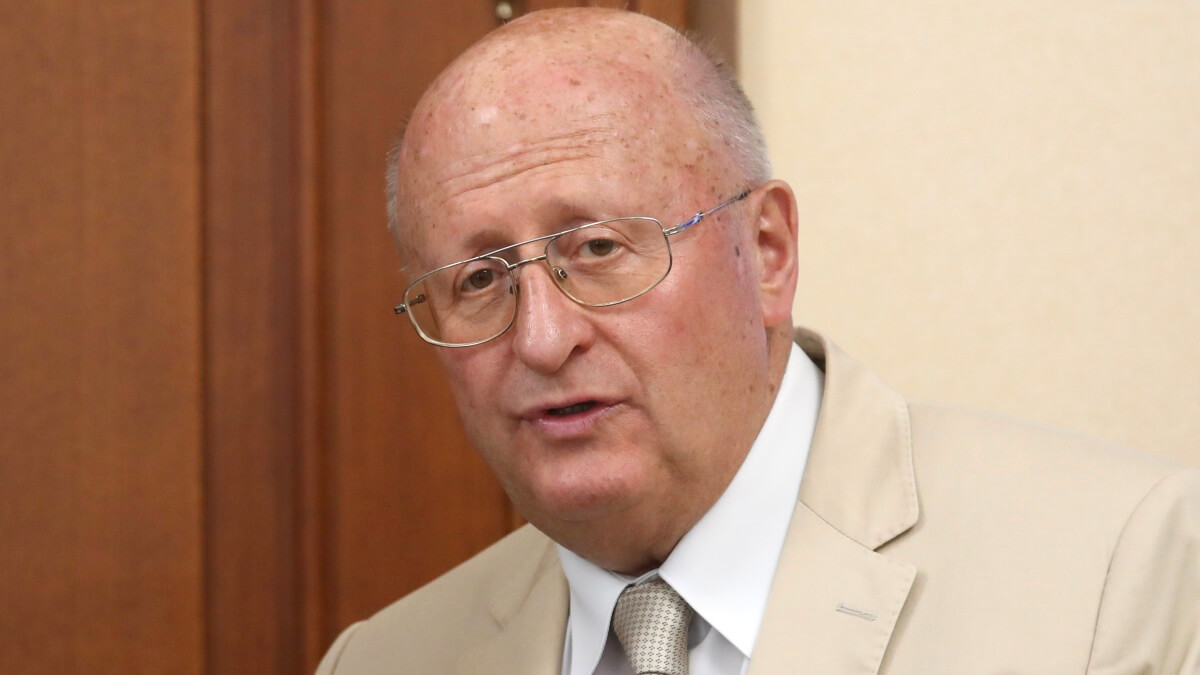The rapid spread of the Delta, a highly contagious SARS-CoV-2 virus strain, has put the world in need of creating a stronger vaccine, and a mix-and-match vaccination might be a possible solution.
Alexander Ginzburg, who heads Gamaleya Research Institute of Epidemiology and Microbiology, believes the Russian-made single dose Sputnik Light Covid-19 vaccine increases protection against the Delta strain for those who already got two Pfizer–BioNTech shots.
Earlier this month, the Russian Direct Investment Fund (RDIF) offered researchers from Pfizer to launch joint trials to learn how Sputnik Light can boost the effectiveness of the German-American vaccine. During the research, the Russian single-dose vaccine will be used as a third shot.
“RDIF’s move to propose boosting Pfizer’s vaccine with Sputnik Light is quite logical so that those who have been vaccinated by Pfizer will be effectively protected by a wider range of antibodies that will be formed as a result of the boost,” RIA Novosti cited Ginzburg as saying on Tuesday.
Sputnik Light is a vector vaccine based on human adenovirus with an integrated SARS-CoV-2 coronavirus gene. Adenovirus is used as a carrier to deliver a small fragment of the coronavirus gene to cells and start the synthesis of the new coronavirus’ envelope proteins, introducing the immune system to a potential enemy. According to RDIF, which financed clinical trials of Sputnik Light, the single-dose vaccine had demonstrated 79.4 percent efficacy, higher than that of many two-dose vaccines.
Developed by Gamaleya Research Institute of Epidemiology and Microbiology, Sputnik Light is the first component of the Sputnik V vaccine, the world’s first registered vaccine against Covid-19.
According to Russia’s health ministry, the effectiveness of Sputnik V against the Delta strain stood at 83.1 percent.
At the same time, some studies show that Pfizer’s effectiveness against the Delta variant has decreased. Russia’s Ginzburg suggests that its efficacy can now be as low as 40 percent.
“It needs to be boosted. And it is better to be boosted with a vector version of the vaccine,” said the director of the Gamaleya Research Institute of Epidemiology and Microbiology.
Tozinameran (INN), codenamed BNT162b2, and more commonly known as the Pfizer-BioNTech vaccine, is a ribonucleic acid (RNA) vaccine developed jointly by the German biotechnology company BioNTech and Pfizer, an American company. According to a study conducted in the US, Pfizer’s effectiveness against the Delta stood at 42 percent in July, compared to over 76 percent in January. The study, however, has not yet been peer-reviewed.
Meanwhile, a mix-and-match vaccination is nothing new for Russia.
Last month, the developers of the Russian-made vaccine and AstraZeneca conducted joint clinical trials to explore whether the hybrid vaccine could improve immunity against the novel coronavirus. Researchers used the British-Swedish vaccine component as the first shot and the single-dose version of the Sputnik V as the second one. According to the interim results of the study conducted in Azerbaijan, no severe side effects and no subsequent coronavirus cases among volunteers have been reported.
According to the World Health Organization (WHO), the Delta variant was first identified in India in late 2020 and detected in 74 countries as of June 14. Scientists report that it appears to be more transmissible and to cause more severe illness, raising fears that it is poised to become the dominant strain worldwide.







 Armenian sappers commenced on Monday mine-clearance operations in the territories adjacent to the Saint Mary Church in village of Voskepar (Armenia...
Armenian sappers commenced on Monday mine-clearance operations in the territories adjacent to the Saint Mary Church in village of Voskepar (Armenia...
 Russian Foreign Minister Sergei Lavrov has reasserted that Moscow has no intentions to stop the fighting in Ukraine, even if peace talks commence.
Russian Foreign Minister Sergei Lavrov has reasserted that Moscow has no intentions to stop the fighting in Ukraine, even if peace talks commence.
 Iran has refuted reports of alleged damage to Shimon Peres Negev Nuclear Research Centre located southeast of Dimona, Israel, during the recent air...
Iran has refuted reports of alleged damage to Shimon Peres Negev Nuclear Research Centre located southeast of Dimona, Israel, during the recent air...
 Iran’s Foreign Minister, Hossein Amir-Abdollahian, has labeled a foiled Israeli drone attack in certain parts of the country as a "failure" for Isr...
Iran’s Foreign Minister, Hossein Amir-Abdollahian, has labeled a foiled Israeli drone attack in certain parts of the country as a "failure" for Isr...



